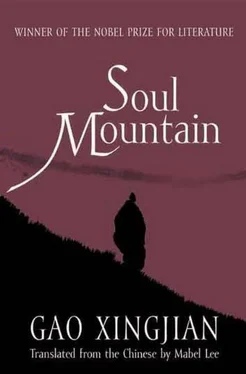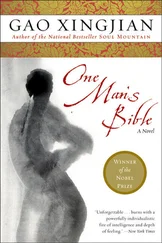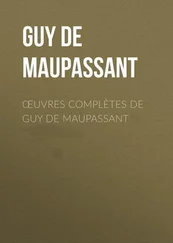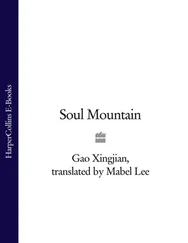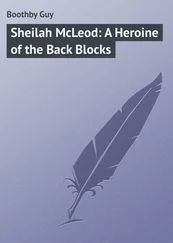He knew how to make children happy. I was probably cross with my mother and in protest I refused to eat the chicken broth with noodles and let it go cold. It was a contest of wills. I was small but I still had my dignity. However, once bent a bow can’t be straightened: my mother was on the verge of losing her temper and an embarrassing scene for me was imminent. This uncle of mine grabbed me and took me onto the street to buy some ice cream. There had just been a storm and the street had turned into a river. He took off his big army boots, rolled up his trouser legs and treading through the water took me into a shop which sold ice cream and cold drinks. I ate two big pieces of ice cream. Since then I have never eaten that amount of anything cold at once. When we got home, my mother saw him carrying his shoes and looking such a sorry sight that she couldn’t help laughing and the cold war between my mother and me ended. It was he, this uncle of mine, who truly had the style of a big man.
His father, who died much earlier from opium smoking and prostitutes, was a comprador capitalist and at the time gave him several thousand silver dollars to go to America to study so that he wouldn’t get further involved in communist underground activities. However, he refused to take a single cent and ran off to Jiangxi province and joined the New Fourth Army to fight in the patriotic war of resistance against the Japanese.
He said when he was in the army headquarters of the New Fourth Army in the mountain regions of southern Anhui province, he bought a leopard cub from a peasant and secretly kept it in an iron cage under his bed. At night, the animal’s instincts would become activated and it would keep growling. When the soldiers discovered it, he couldn’t bear to have it killed and gave it away.
He and my father liked to yarn. Whenever he visited he would send away his driver as well as his bodyguard, and take from his leather bag a bottle of good liquor which you wouldn’t be able to get in the shops and he would give me a big bag of Shanghai mixed sweets. Once they started talking, they would talk through the whole night until morning. They would talk about their childhood and youth, just like now when I occasionally get together with my old classmates.
He talked about the desolation of their old home, of grass sprouting from the roof-tiles, and he talked about coming home from the primary school outside town in the autumn wind and cold rain with his clothes covered in blood from his bleeding nose. He was in a state of shock, running and crying, but the long street of people he knew and distant relatives just stood under their eaves or sat behind their counters looking on with indifference. Only the old woman who sold bean curd came out, took hold of him and dragged him into the mill. She stuffed bits of toilet paper into his nose and stopped the bleeding.
He also talked about their old village, the old house the family rescued after that lunatic great-grandfather of mine set fire to it, and about the girl next door who suicided because of her betrothal. People saw her coming out of the haberdashery shop with a length of patterned cloth and thought she was going to make clothes for her trousseau. Two days later, dressed in a new jacket and trousers made from the cloth, she killed herself by swallowing needles.
I would wrap myself up in a quilt and listen enraptured, refusing to sleep. I saw this uncle wheezing and chain-smoking one cigarette after another and getting up to pace around the room when he got to an exciting part. He said his only wish was that one day, after retiring, he would find somewhere to write a book.
The last time I went to see him in Shanghai he had some sort of puffer and whenever he had an attack of asthma, he would spray it down his throat. When I asked if he had written his book he said luckily he hadn’t otherwise he probably wouldn’t be alive. This was the only time he didn’t treat me like a child. He told me it was not the time for literature. He also warned me not to get involved in politics. Once involved, you won’t know north from south or east from west and you will have lost your head without even noticing. I told him I couldn’t complete my studies at university. Then be an observer. He said he was now an observer. Before the Cultural Revolution, in what the newspapers call the Anti-Rightist period when people were starving to death in the countryside, he was singled out and investigated and for many years he has stood aside. No wonder at that time he and my father lost touch. He had just sent one message by word of mouth that he was burdened by military matters and was off to make investigations in faraway Hainan Island. At the time I didn’t know there was a message within the message.
From that time on, I too became an observer. It was on this same Beijing — Shanghai line that I saw “Attack with Writing and Defend with Military Might” fighters standing in a long single row along the railway platform. They were clutching iron spears and were wearing helmets of woven willow branches and red armbands. As soon as the train stopped, they blocked every carriage door. A person who was about to alight turned and squeezed his way back inside. They immediately surged in after him. The person screamed for help but no-one in the carriage dared to move and watched as he was dragged off the train. The group on the platform immediately surrounded him and began to kick and beat him. The train sounded the whistle and slowly moved off. I don’t know if the person died or got away with his life.
At the time every city along the way had gone mad. Walls, factories, high voltage poles, water towers, man-made constructions of any kind, were all covered in slogans swearing to defend with one’s life, to overthrow, to smash, and to fight a bloody war to the end. As the train roared along, there was the singing of battle songs on the broadcast system on board and on the loudspeakers outside in every place the train passed. North of the Yangtze at a station called Clear Brilliance — I don’t know how it was possible for such a place name at that time — the platform and the tracks were crammed with refugees. The train’s doors didn’t open so people scrambled to climb through open windows into the carriages which were already packed like sardine cans. In response to this the people in the suffocating carriages quickly shut the windows. The glass became boundaries and the people inside and outside who were all refugees alike suddenly became enemies. Oddly enough, once separated by this transparent glass, the faces on the other side changed and became angry and hostile.
The train moved off and a barrage of stones hailed down along with a cacophony of swearing, smashing and screaming. This is probably what people see on the way down to hell while still believing they are suffering for their faith.
It was also during those years and also on this same railway track that I saw part of the naked corpse of a woman which had been cut neatly by the wheels of the train, like a section of fish cut through with a sharp knife. At first there was a violent jolt followed by a blast of the train whistle and the rattle of metal and glass. I thought it was an earthquake. Those times were really uncanny. It was as if heaven was responding to human beings, and the earth had also gone crazy and was shaking endlessly.
The train lurched ahead a couple of hundred metres before it came to a halt and the attendants, police and passengers all jumped off. Bloody strips of flesh were strewn all over the place on the stalks of the dry grass along the tracks and the air was thick with the stench of blood… human blood is more rancid than fish blood. On the slope by the tracks lay this complete section of a woman’s corpse, without the head, neck, arms or legs. The blood must have all spurted out, and it was starkly white, like a broken alabaster statue with the lustre of skin. The healthy young woman’s body still bore traces of life and sensuousness. An old woman amongst the passengers brought back a shredded fragment of clothing from a withered branch some distance away and covered the lower part of the body. The driver, mopping at his sweat with his cap, frantically explained how he saw this woman walking on the tracks and sounded the whistle. When she didn’t get out of the way, he immediately braked. He couldn’t brake any harder because he had a trainload of passengers on board. The instant before the impact, she suddenly jumped up, and as she jumped… Ai, she wanted to commit suicide, she clearly wanted to kill herself. Was she a student who had been sent to the countryside? A peasant woman? She hadn’t had any children. Why talk about things like that? The passengers had all joined in the discussion. She definitely couldn’t have wanted to suicide, otherwise why did she try to jump out of the way? Could dying be as simple as that? You have to be quite callous to die! Probably she was preoccupied. This isn’t crossing a road, it is broad daylight and there was a train coming at her! Unless she was deaf, her heart would already have been dead, so being alive wasn’t any better than being dead. The person who said this quickly walked away.
Читать дальше
Конец ознакомительного отрывка
Купить книгу
